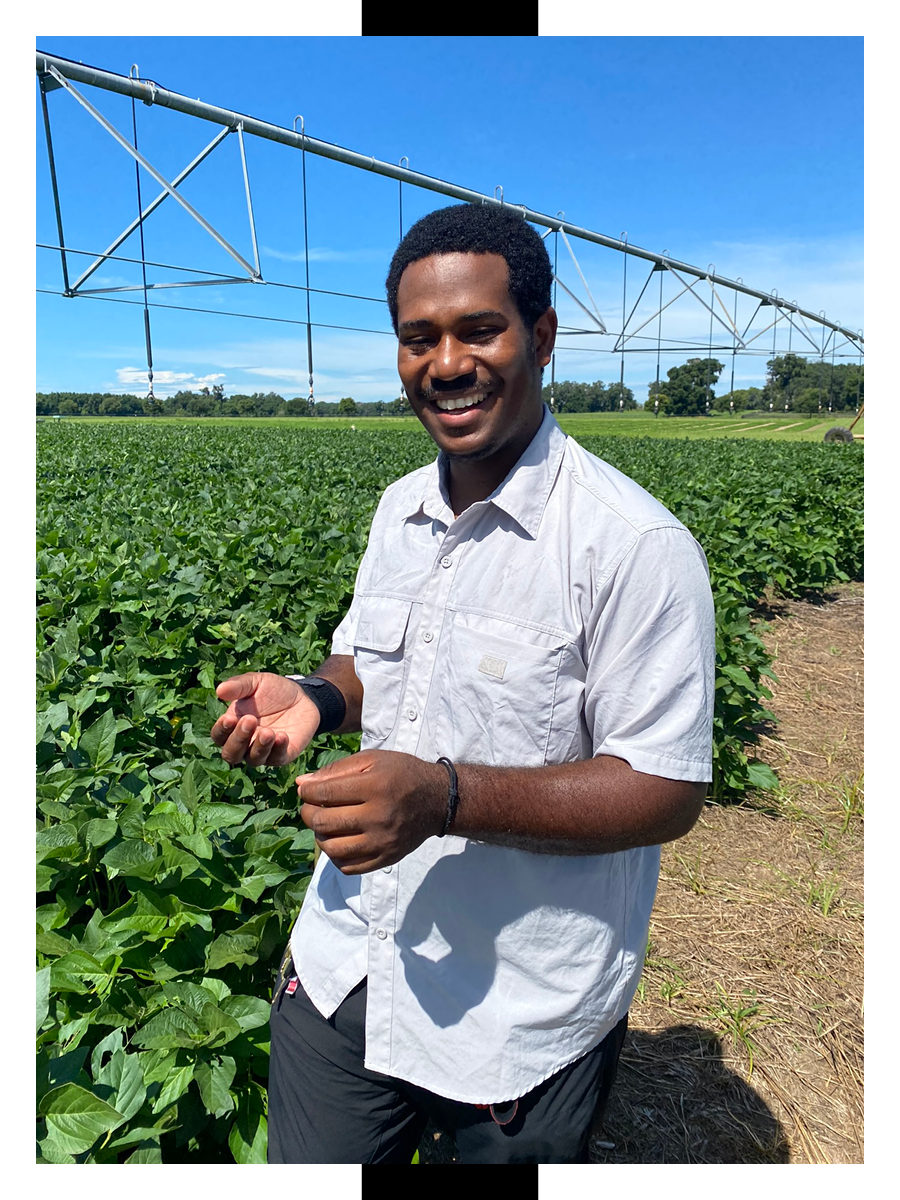
Jermaine D. Perier
Originally from Jamaica, Perier graduated from CAES with a doctorate in entomology before joining Assistant Dean Michael Toews' lab as a postdoctoral researcher.
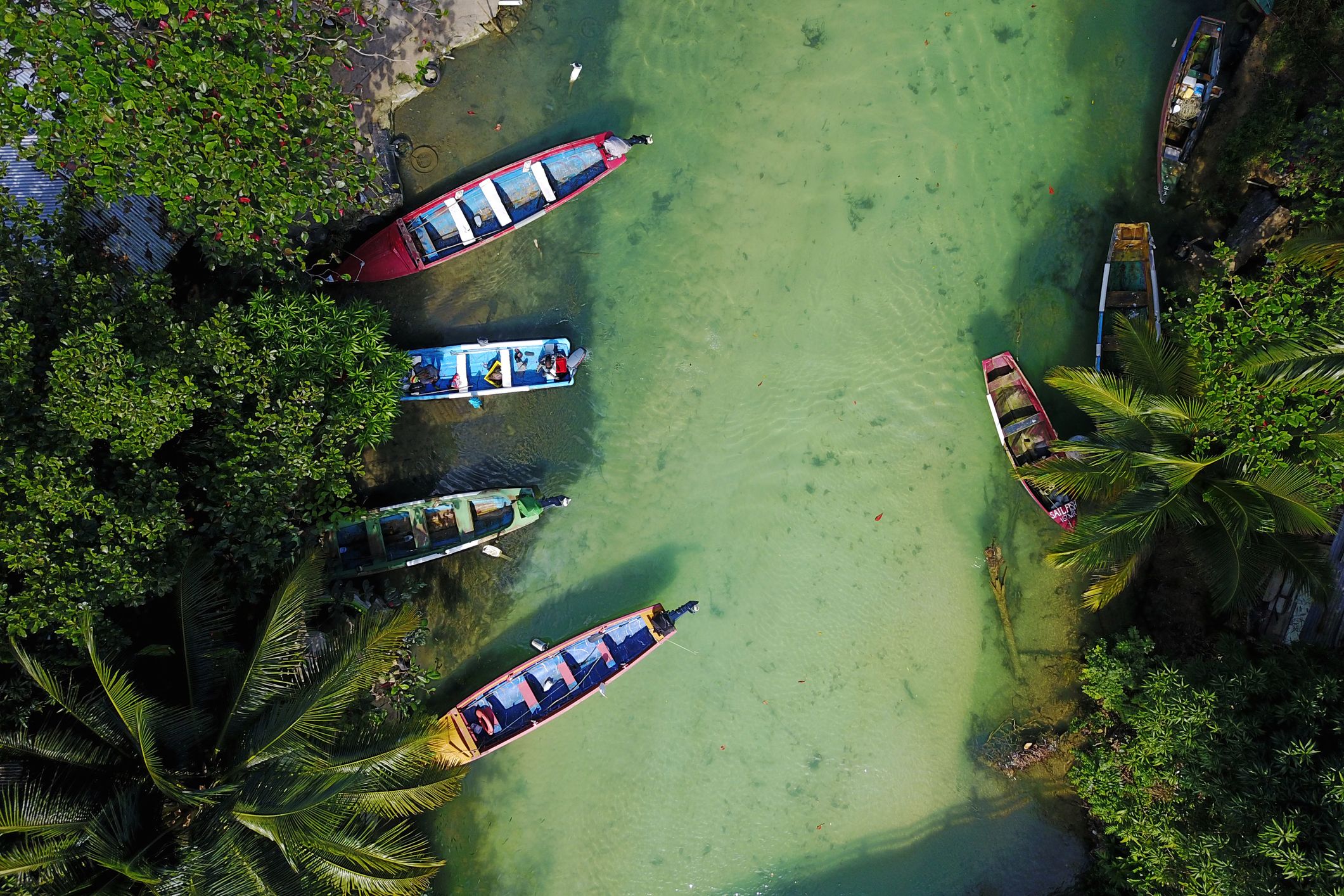

Where are you from, and why did you choose to attend UGA and CAES?
I'm from Jamaica. I met my major professor, David Riley in the entomology department, while liaising with an international scholar working with peppers and pepper weevils while I was still enrolled at Florida A&M University for my master's degree.
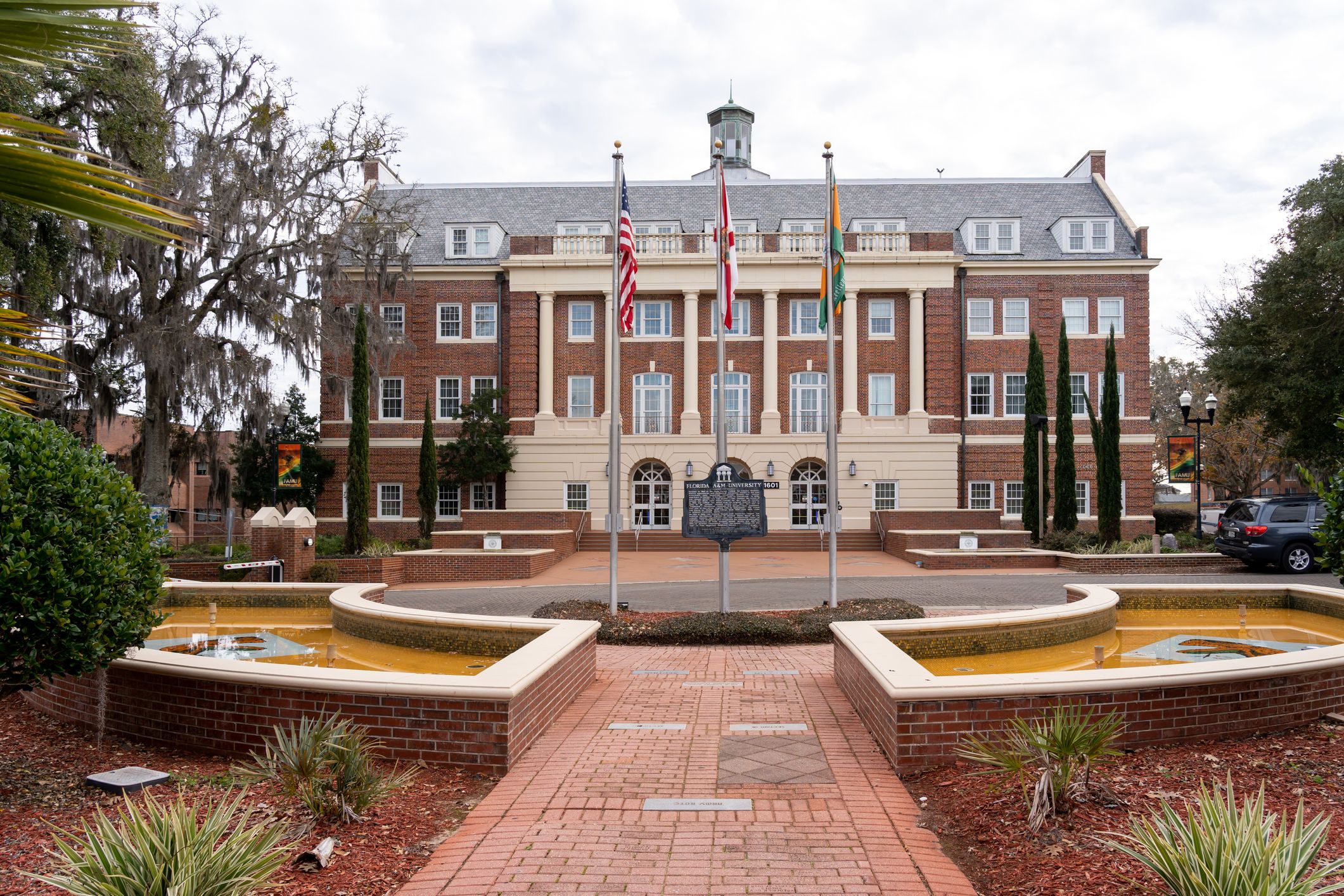
Lee Hall at Florida Agricultural and Mechanical University (FAMU) in Tallahassee, Florida.
Lee Hall at Florida Agricultural and Mechanical University (FAMU) in Tallahassee, Florida.
We began discussing a few research ideas and possibly pursuing a Ph.D. Afterward, I went and did more research on the projects carried out by the department and was impressed.
So I decided to enroll to earn my doctoral degree in the entomology department, which falls under CAES.
Why did you choose your field of study?
I chose entomology because I grew up surrounded by agriculture and fully understood the need to ensure we could reduce yield loss to pests. But I became sure after my lecturer in undergrad, Lilieth Clarke Sinclair of the College of Agriculture, Science and Education (CASE) in Jamaica, introduced me to integrated pest management (IPM).
Next, I became obsessed with IPM approaches and more sustainable means of pest management. So a degree in entomology felt right.
I enjoyed working with insects and describing their possible interactions with many stimuli, leading me to a second degree in entomology — I hope to someday in the future pass on this passion for IPM and entomology-driven research to future generations. I developed a desire to enhance disease management and crop protection strategies to help the surrounding agricultural communities.
What was your favorite class in your program?
At UGA, I would have to say “Insect Taxonomy.” I love how Professor Joseph McHugh is passionate about his discipline (and the small brown beetles, or the “little brown jobs,” as he calls them) and makes the topics entertaining so we can learn and retain more.
What has been the best experience you've had so far at the college?
At the UGA Tifton campus, we go on planned student involvement excursions. I have enjoyed all of them, but the best one I have been on was a kayaking trip. It was my first time, but I loved it.
I thought the best UGA experience would be passing my Ph.D. defense. But graduation was definitely better.
What are you currently working on, and what is the end goal of that project?
I work with insecticides of different IRAC groups (more specifically, Cyantraniliprole and Imidacloprid) and evaluate their response in the insect Bemisia tabaci (sweetpotato whitefly) in our Georgia farmscapes.
I also describe how feeding on different plants may shift the response of B. tabaci to these insecticides and what that means for control effectiveness. Finally, we identify genes associated with insecticide resistance to these insecticides.
The end goal of this research program is to provide more accurate recommendations for whitefly management to the farming community (our growers) and improve the methodology used to evaluate insecticides by increasing its accuracy.
How has your experience at UGA changed you?
My time at UGA has increased my awareness of the need for professional networking, extension, and service participation and also allowed me to improve my public speaking.
What do you want to do with what you have learned here?
I hope to mentor other undergraduate and graduate students one day while continuing more vegetable entomology-driven research.
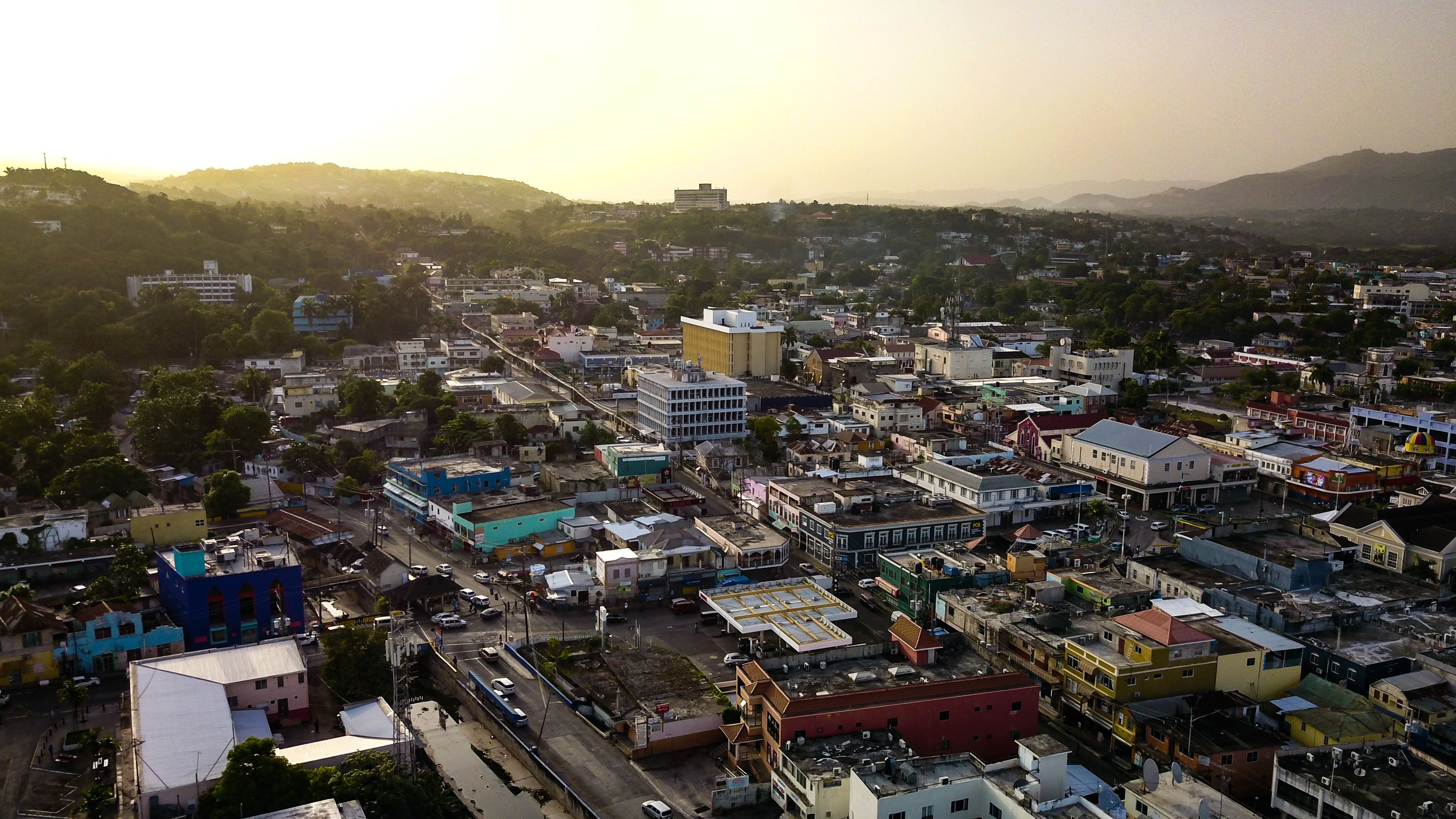
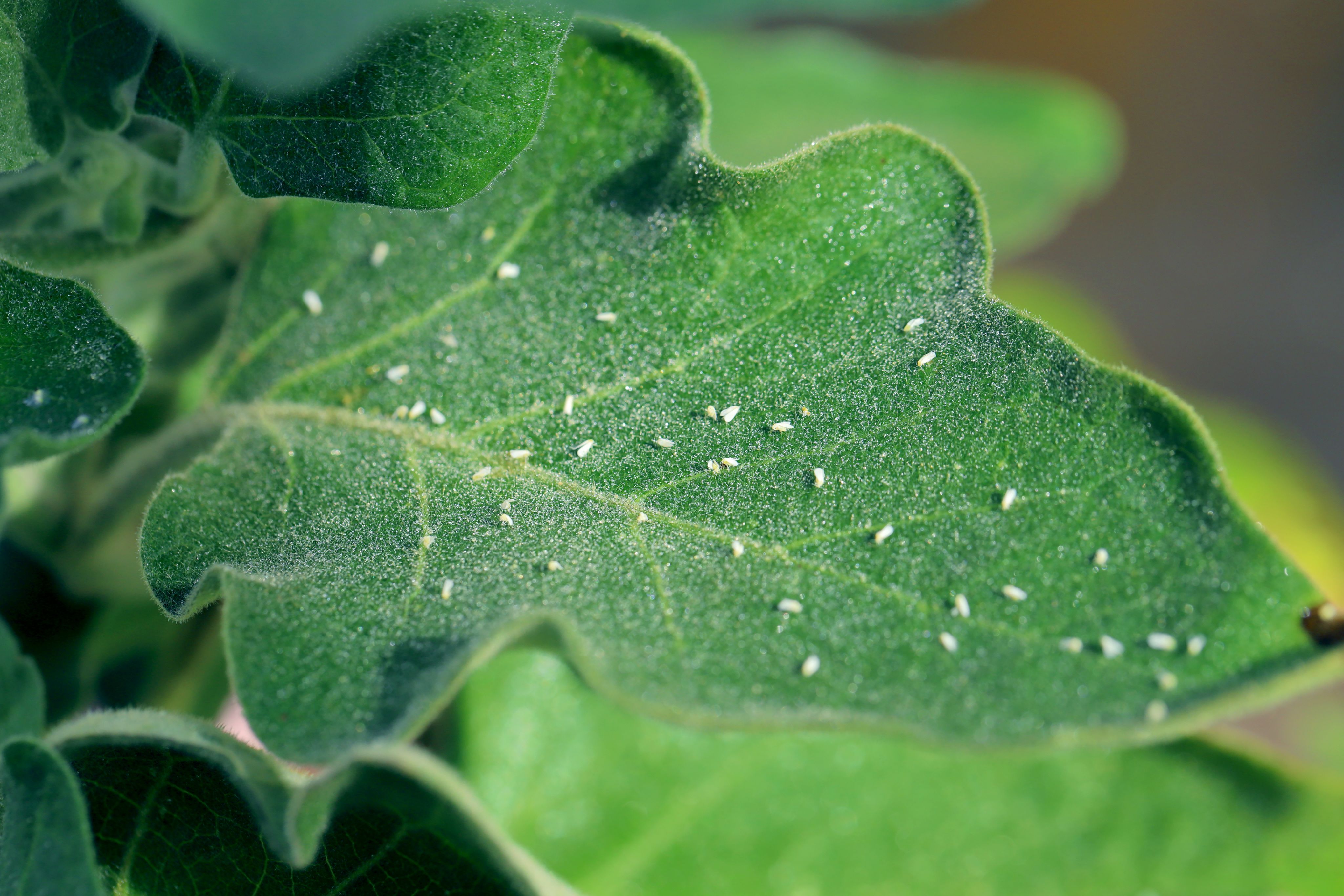
What would you most like the public to understand about your work?
The ecology of an insect is complex and covers many categories.
Still, when you try to understand this, it will improve our pest control methods and produce more sustainable approaches that effectively use the already available tools.

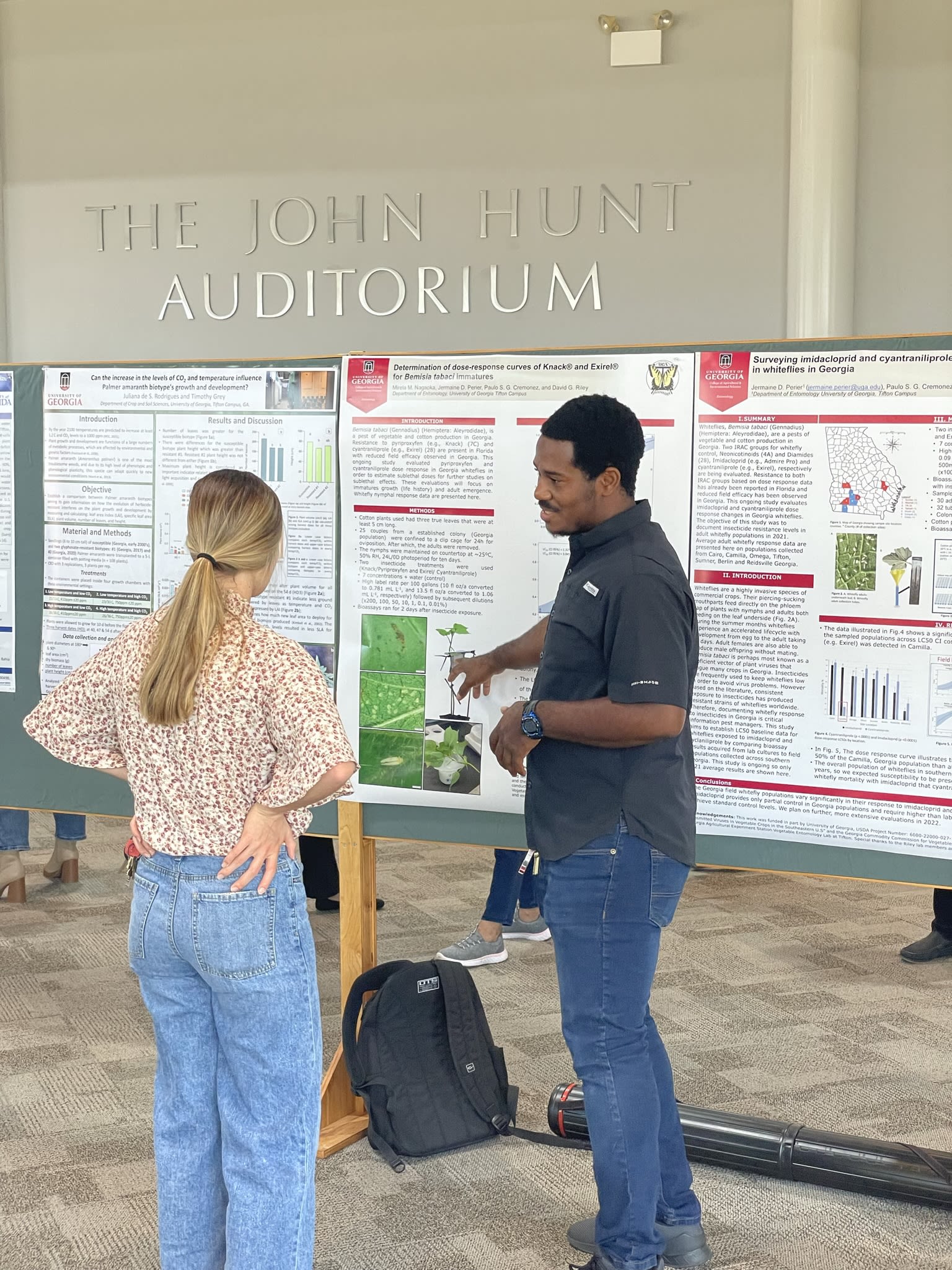
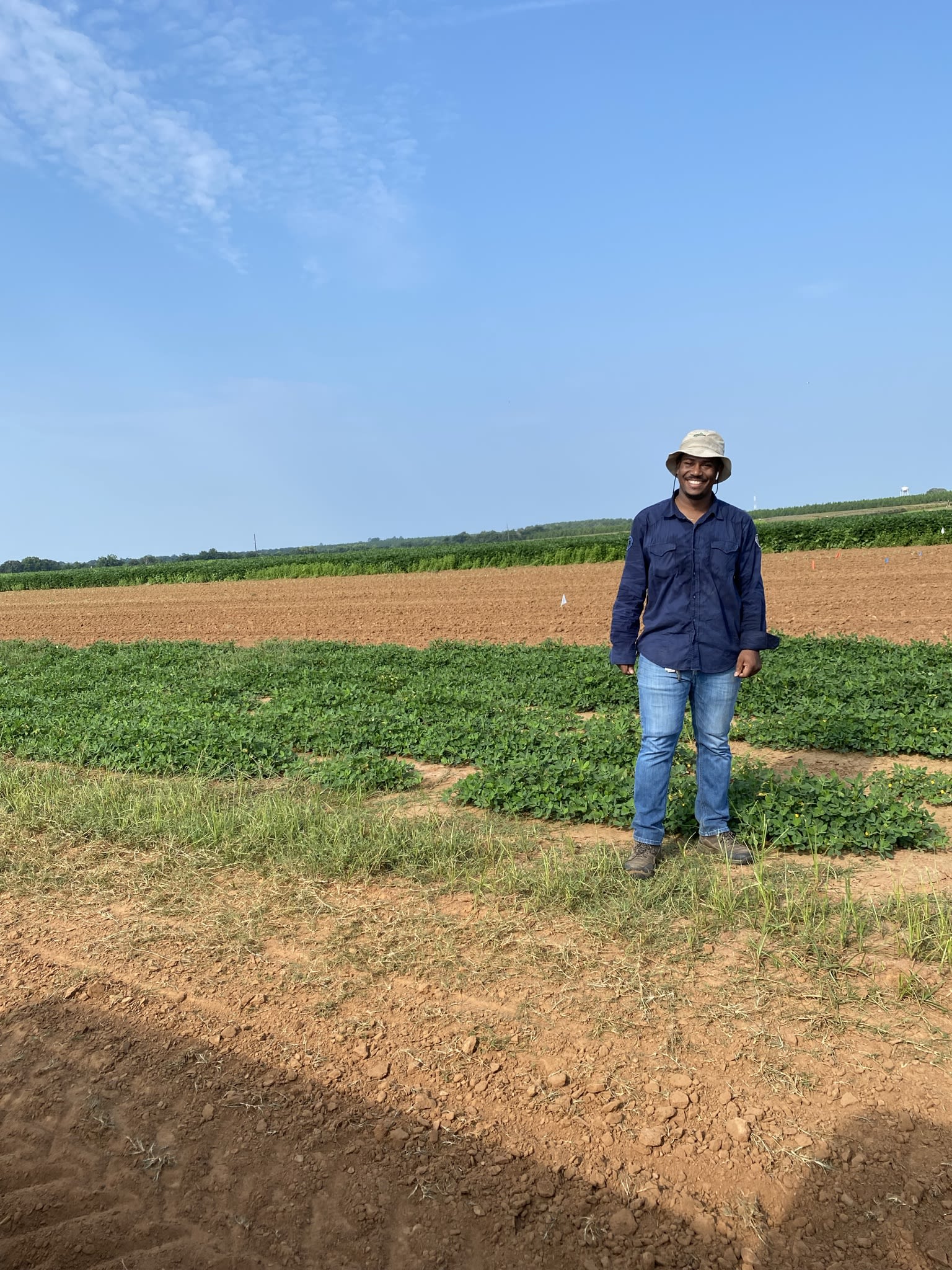
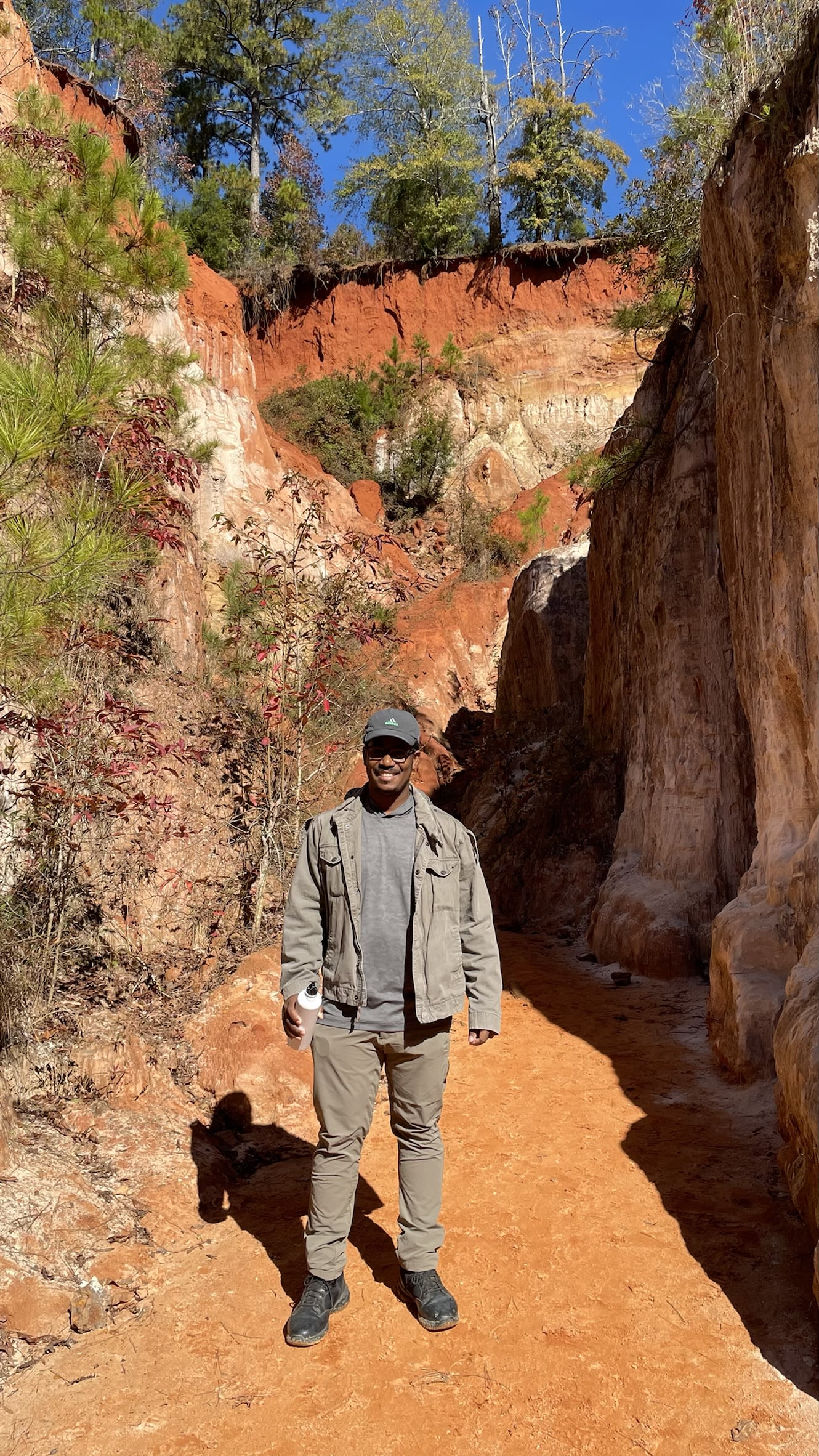
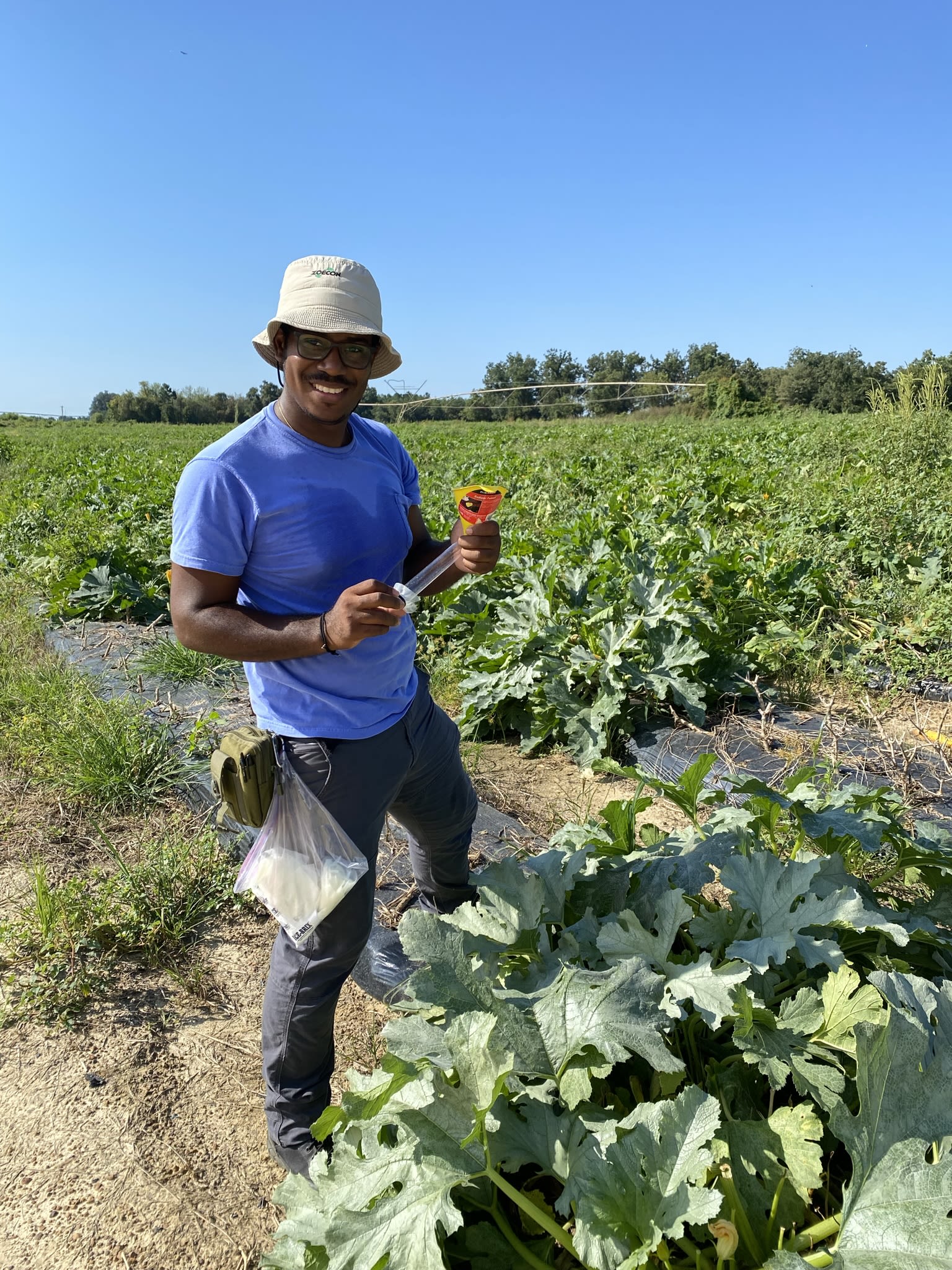

Perier tries kayaking with a group from UGA-Tifton.
Perier tries kayaking with a group from UGA-Tifton.

Perier presents his research poster on B. tabici insecticide response.
Perier presents his research poster on B. tabici insecticide response.

Perier does research in the field at UGA-Tifton.
Perier does research in the field at UGA-Tifton.

Perier visits Providence Canyon State Park with UGA-Tifton.
Perier visits Providence Canyon State Park with UGA-Tifton.

Perier surveys a commercial farm in south Georgia.
Perier surveys a commercial farm in south Georgia.
What do you like to do outside of class — hobbies, interests, secret talents?
I swim, play football (soccer) a lot, and do many other sports. Play chess and card games, do puzzles, watch movies and TV series, read anime and journal articles, cook, and sometimes bake.
I am fond of instruments and like learning to play new ones — I am currently learning to play guitar.



